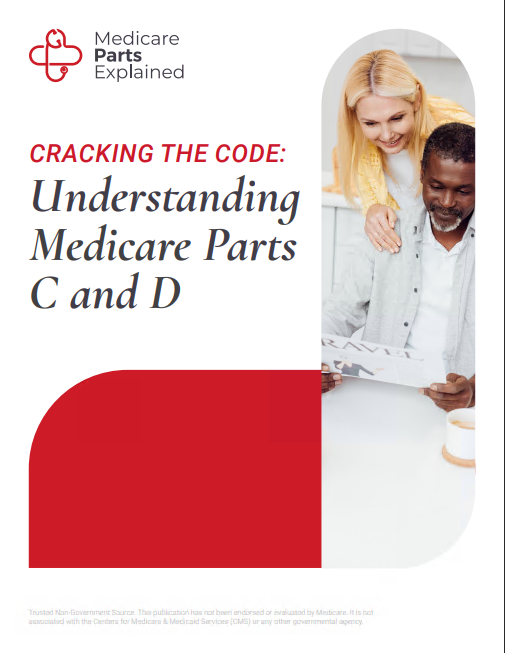Key Takeaways
-
You can delay Medicare Part B enrollment if you’re still working and covered by an employer group health plan, but this choice comes with strict timing rules and potential penalties.
-
Not all employer coverage counts as “creditable coverage” for Medicare, and assuming it does can lead to costly enrollment gaps or higher premiums later.
What Happens When You Delay Medicare Because of Employer Coverage
If you’re 65 or older and still working, you might wonder whether you should enroll in Medicare right away or keep your employer coverage. For many, the answer depends on the size of the employer and how the employer plan works with Medicare.
When you’re eligible for Medicare, you typically have a seven-month Initial Enrollment Period (IEP), which includes:
-
The three months before your 65th birthday month
-
Your birthday month
-
The three months after your birthday month
If you have employer coverage through active employment (either your own or a spouse’s), you may choose to delay Medicare Part B and Part D without penalty—but only if the coverage qualifies as creditable.
Understanding Creditable Coverage Rules
The term “creditable coverage” is crucial. Here’s what it means in 2025:
-
For Part B: Employer group health plans from companies with 20 or more employees are generally considered creditable.
-
For Part D: Prescription drug coverage must be at least as good as what Medicare provides. Plans determine this annually.
You should receive a notice of creditable coverage each year from your employer or health plan. Keep this documentation. You may need it if you delay Medicare and later want to avoid late enrollment penalties.
When Employer Coverage Ends—Timing Is Everything
Once your employer coverage ends, you enter an eight-month Special Enrollment Period (SEP) to sign up for Medicare Part B. This SEP starts the month after your employment or coverage ends—whichever comes first.
Important:
-
The SEP for Part D is only two months long.
-
If you miss these windows, you may have to wait until Medicare’s General Enrollment Period (January 1–March 31), with coverage starting July 1 and a potential late penalty.
Why Timing Mistakes Can Cost You
Delaying Medicare without understanding the rules can have consequences:
-
Late Enrollment Penalties
-
Part B: 10% increase in premiums for each 12-month period you were eligible but not enrolled.
-
Part D: 1% increase in premiums for each month you went without creditable prescription drug coverage.
-
-
Coverage Gaps
-
Missing enrollment deadlines may leave you uninsured for months.
-
COBRA and retiree coverage don’t qualify you for a Special Enrollment Period.
-
Can You Keep Employer Coverage and Medicare Together?
Yes, many people use both. But who pays first depends on your situation:
-
If your employer has 20 or more employees, the employer plan pays first, Medicare is secondary.
-
If your employer has fewer than 20 employees, Medicare pays first.
In 2025, this coordination affects how your claims are processed and your out-of-pocket costs.
Evaluating the Costs and Benefits of Delaying Medicare
Here are some things to consider when deciding whether to delay Medicare:
-
-
Medicare Part B premiums are $185/month in 2025.
-
Employer plans may be cheaper—or more expensive.
-
-
Deductibles and Copayments
-
Medicare has a $257 annual Part B deductible.
-
Employer plans vary widely.
-
-
Prescription Drug Costs
-
If your employer coverage doesn’t meet the Part D standard, you may face late penalties.
-
-
HSA Contributions
-
If you enroll in any part of Medicare, you can no longer contribute to a Health Savings Account (HSA).
-
Enrolling in Medicare retroactively (up to six months back) can trigger HSA contribution penalties.
-
What About COBRA or Retiree Health Plans?
It’s a common misconception that COBRA or retiree health insurance lets you delay Medicare safely. Unfortunately, this isn’t true.
-
COBRA and retiree coverage do not count as creditable employer coverage for delaying Part B.
-
Once your active employment ends, your Special Enrollment Period begins. Relying on COBRA while delaying Medicare can result in coverage gaps and penalties.
Planning for a Seamless Transition to Medicare
To avoid penalties and ensure continuous coverage, follow these best practices:
-
Confirm coverage status: Make sure your employer coverage is creditable for both Part B and Part D.
-
Get documentation: Request the annual creditable coverage notice and keep it on file.
-
Understand your timeline: Know when your Special Enrollment Period begins and ends.
-
Apply early: It can take time to process your Medicare application. Don’t wait until the last minute.
-
Talk to HR: Ask your benefits administrator how Medicare coordinates with your current plan.
Spouse Coverage—What If You’re on Their Plan?
If your coverage comes from your spouse’s active employment, the same rules apply:
-
If the spouse’s employer has 20 or more employees, you can delay Part B without penalty.
-
Once that coverage ends, your SEP begins—even if your spouse keeps working.
Be aware that your SEP timeline is tied to your own Medicare eligibility and the end of your coverage, not your spouse’s retirement plans.
Part D Risks If You Skip Drug Coverage
Even if you delay Part B correctly, skipping drug coverage is another risk. Medicare Part D late penalties apply unless you have creditable prescription drug coverage.
-
Penalty: 1% of the national base premium for each month without coverage.
-
In 2025, the base premium is approximately $46.50, which means just one year of delay could add over $5 per month permanently to your premium.
Switching From Employer Coverage to Medicare Mid-Year
Some people choose to leave employer coverage before retirement or switch to Medicare mid-year. In that case:
-
You can enroll in Medicare anytime during your SEP.
-
Coverage typically begins the first of the month after enrollment.
-
Coordinate your switch to avoid any gap in prescription drug or medical coverage.
Medicare Advantage Plans and Employer Insurance
If you’re considering Medicare Advantage (Part C) in place of or alongside employer coverage, remember:
-
You can’t have both in most cases—employer plans may require you to drop one.
-
Make sure the Medicare Advantage plan meets your needs, especially if it has a limited network.
-
Some employers offer group Medicare Advantage options—these follow different rules and often require separate enrollment.
Be Proactive, Not Reactive
Delaying Medicare while working is possible, but it requires careful planning and attention to deadlines. Waiting until the last minute—or making assumptions about what counts as creditable coverage—can cost you money and coverage.
Before You Decide to Delay Medicare
If you’re 65 or nearing it in 2025 and still working, now is the time to:
-
Review your employer coverage in detail
-
Understand how Medicare works with your plan
-
Avoid common mistakes that lead to penalties
Speak with a licensed agent listed on this website to go over your specific circumstances. They can help you review your options and timelines so you don’t miss key enrollment windows.










